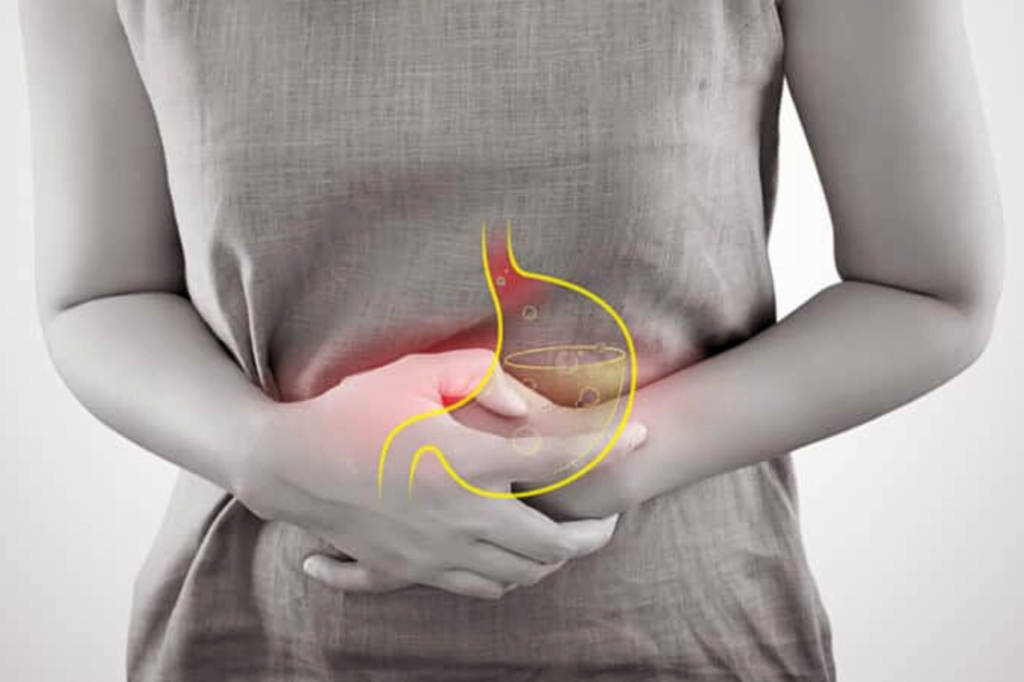Synopsis
GERD (Gastroesophageal Reflux Disease) is a common condition where stomach acid flows back into the tube connecting your mouth to your stomach, causing discomfort and possible long-term harm. It’s not just an occasional problem—it’s a chronic condition that needs attention and treatment to avoid serious health issues.
Understanding GERD
Normally, food moves from your mouth to your stomach, and a special muscle helps keep things in place. This muscle acts like a valve, allowing food into the stomach and then closing to keep everything where it belongs.
But when this muscle weakens or doesn’t work right, stomach acid can flow back up into the tube that connects your mouth to your stomach. This is called acid reflux, and in people with GERD, it happens often, leading to symptoms like burning in the chest or throat, chest pain, and difficulty swallowing. Over time, the acid can damage the lining of the tube, causing even more problems.
Common Symptoms
GERD can show up in different ways for different people. Some common symptoms include:
- Heartburn: A burning sensation in the chest, especially after meals.
- Regurgitation: A sour or bitter taste in your mouth caused by stomach contents coming back up.
- Chest Pain: Pain in the chest that might feel like a heart problem.
- Difficulty Swallowing: A feeling like food is stuck in your throat.
- Coughing or Wheezing: These can be especially bad at night.
- Sore Throat: Acid can irritate the throat, causing discomfort.
Sometimes GERD doesn’t cause heartburn. Some people experience other symptoms like coughing, hoarseness, or dental problems instead.
Treatment
There are many ways to treat GERD. The goal is to relieve symptoms and prevent complications so you can feel better and live your life without discomfort.
1) Lifestyle Changes
Making some simple changes to your routine can help a lot with GERD symptoms:
- Watch What You Eat: Some foods, like spicy dishes, chocolate, coffee, and fatty foods, can trigger GERD. Eating smaller meals more often can also help.
- Modify Eating Habits: Avoid eating large meals late at night, and wait at least 2-3 hours before lying down after eating.
- Lose Extra Weight: Extra weight puts pressure on the stomach, which can lead to more acid reflux. A healthy diet and exercise can help reduce symptoms.
- Elevate Your Head While Sleeping: Raising your head can help prevent acid from flowing back up while you sleep.
- Quit Smoking: Smoking weakens the muscle that keeps the acid where it belongs. Quitting smoking can improve GERD symptoms.
2) Medications
If lifestyle changes don’t completely solve the problem, there are medicines that can help manage GERD:
- Antacids: These neutralize stomach acid and provide quick relief for mild heartburn.
- Acid Reducers: Some medications can lower the amount of acid your stomach makes, helping with moderate GERD symptoms.
- Stronger Medications: There are medicines that block acid production and help heal damage to the stomach tube.
These medications are helpful, but should only be used with a doctor’s guidance because using them too much can lead to side effects.
3) Surgery
In more severe cases, when GERD doesn’t improve with lifestyle changes or medications, surgery might be needed. One option involves tightening the muscle that prevents acid from coming back up, which can stop GERD from causing trouble.
Complications of Untreated GERD
If GERD is left untreated, it can lead to serious issues, such as:
- Inflammation: Acid can cause irritation in the stomach tube, leading to pain and damage.
- Narrowing of the Tube: This can make swallowing difficult.
- Changes in the Tube Lining: This can increase the risk of more serious conditions, like cancer.
- Teeth Damage: The acid that comes into the mouth can harm your teeth over time.
A WORD FROM HEGDE FERTILITY
GERD is a treatable condition. By making lifestyle changes, using the right medications, and considering surgery when necessary, many people with GERD can live without the discomfort. If you think you might have GERD, talk to a healthcare provider to find the best treatment for you. With proper care, GERD can be controlled, helping you enjoy better digestive health and a better quality of life.

